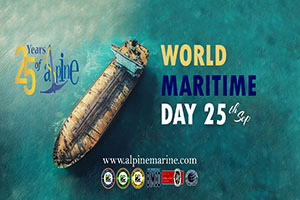
Maritime Week from November 1 to 7, 2025
Pakistan will observe Maritime Week from November 1 to 7, 2025, purposes to showcase the Pakistan’s vast maritime potential and strategic importance in regional and international trade. During Maritime Week, the government and relevant stakeholders will launch a series of initiatives focused on enhancing maritime infrastructure, promoting sustainable marine resource management, and boosting the maritime economy. The observance will comprise conferences, exhibitions, workshops, and awareness campaigns intended to engage industry leaders, policymakers, academics, and the public. Events will emphasize the critical role of Pakistan’s ports, shipping industry, fisheries, and marine tourism in national economic development. The initiative reflects Pakistan’s commitment to strengthening its maritime sector as a crucial for economic growth, job creation, and regional connectivity under frameworks such as the China-Pakistan Economic Corridor (CPEC) and the Blue Economy vision.
|
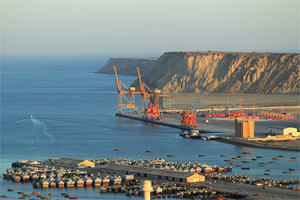
Maritime Affairs Action Plan (2025-2029)
The five-year Maritime Affairs Action Plan (2025-2029) is poised to transform Gwadar into a regional trade and transit hub. The objective of the action plan is sustainable use of marine resources and environmental protection with the Belt and Road Initiative's "green energy and ocean". The plan aligned with the CPEC, seeks to enhance maritime cooperation with China while promoting economic connectivity with landlocked countries like Afghanistan, Central Asia, the Middle East, and Africa. The agenda stresses the development of infrastructure with the expansion of Gwadar Port and the development of port-related industries, cold storage facilities, and warehousing as part of the strategy to facilitate transshipment and regional trade, advance development in the adoption of electronic data interchange systems and smart port technologies to integrate Gwadar with Chinese and international shipping networks, completion of Free Zone Stage II, acceleration of East Bay Expressway Phase II to improve inland accessibility and integration of the airport with the port to support multi-modal transit and regional logistics.
|
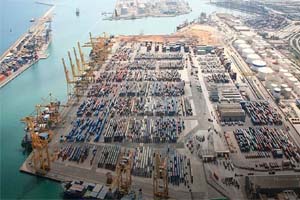
Port Qasim Ranks 9th In World Bank’s Container Port
In the World Bank’s Container Port Performance Index (CPPI) for the period 2020-2024, Port Qasim has been ranked 9th. The port’s high ranking reflects a 35.2-point leap in performance between 2020 and 2024 placing it among the Top 20 most improved ports worldwide. The report attributed performance gains to reduced waiting times at anchor, optimized berth operations, investment in digital tools, and stronger coordination among logistics partners. The study emphasized the importance of maritime and hinterland connectivity, noting that ports offering more frequent rail, truck, and waterway transport options are increasingly attractive to exporters and importers. Cargo dwell time and the distinction between total arrival hours and berth hours were also key factors in measuring efficiency. Pakistan is working to position itself as a strategic logistics corridor connecting the Middle East, Central Asia, China, and beyond. Efforts are underway to integrate ports with inland transport networks, expand digital systems, and ensure environmental sustainability in maritime operations.
|
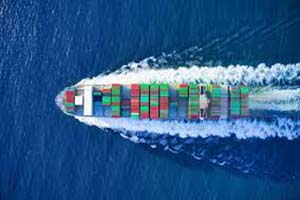
The Global Maritime Routes Under Threat
Global maritime shipping handles over 80% of world trade and is presently facing challenges including fragile growth, rising costs, and increasing uncertainty. Important shipping routes and chokepoints are under threat from geopolitical tensions, severe weather, and piracy. Freight rates remain high and volatile due to these disruptions, with enduring shifts in trade policies and supply-demand imbalances further complicating the situation. Longer routes also contribute to increased greenhouse gas emissions, which rose by 5% in 2024. Only a small fraction 8% of the global fleet is equipped to use alternative fuels, and recycling of ships remains low. At the same time, the sector is undergoing profound changes driven by automation and digitalization, which offer efficiency gains but also increase cyber risks.
|
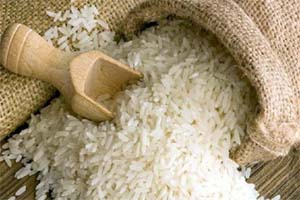
Surge in Rice Exports to China
Year-on-year during the first eight months of 2025, Pakistan’s rice exports to China recorded a strong growth of approximately 68.5%. Total rice exports reached $44.31 million, up from $26.30 million during the same period in 2024. The surge imitates the increasing demand for Pakistani rice, driven by its quality, taste, and competitive pricing. A major share of the growth came from semi- or wholly milled rice (HS code 10063020), which saw an increase in exports — rising from $5.63 million in 2024 to $33.67 million in 2025 with broken rice exports contributed $7.71 million to the total. The growth underlines Pakistan’s intensifying footprint in China’s food market and reflects the extending agricultural cooperation and collaboration between the two countries. Improved partnership between Pakistani exporters and Chinese importers has an important role in accelerating this positive trend.
|

Poland to Expand Investment in The Pakistan
With the state-owned energy company ORLEN, Poland is formulating to increase its investment footprint in Pakistan and set to double its existing $500 million investment in the Pakistan’s oil and gas sector over the next ten years. The Polish ambassador to Pakistan highlighted the promising potential of new exploratory concessions in Sindh and Baluchistan. Poland is encouraging Polish firms to engage in Pakistan’s to diversify into other sectors, notably mining with Pakistan’s vast untapped reserves of copper and lignite presenting attractive opportunities for foreign investors and agricultural value chain by establishing cold storage and processing facilities for fruits and vegetables to boost export capacity and reduce post-harvest losses. The planned expansion underscores commitment to strengthening partnership between both countries, reflecting growing interest in tapping into Pakistan’s rich natural resources and emerging markets.
|

Petroleum Division to Raise GST exemption
The Petroleum Division raised the issue of general sales tax (GST) exemption for petroleum products with the International Monetary Fund (IMF) to facilitate $6 billion in refinery upgrade investments. The move comes as an IMF mission is in Pakistan for program review talks under the $7 billion Extended Fund Facility. Intends to address complaints from refineries, which reported a Rs40 billion loss during the last fiscal year due to the GST exemption. While a momentary measure permits the industry to collect Rs1.87 per liter to offset losses, the ministry purposes to project a full package to encourage plant modernization. Inconsistent government policies have deterred foreign investors and are not ready to pump money into plant upgrade projects of refineries. The Special Investment Facilitation Council has directed the finance and petroleum ministries to resolve the GST exemption issue, but a solution has yet to be implemented. Industry representatives, including the Oil Companies Advisory Council (OCAC), have expressed the prolonged uncertainty threatens $6 billion worth of investments aimed at producing environmentally friendly fuels. The OCAC emphasized that continuation of the sales tax break undermines the objectives of the Pakistan Brownfield Oil Refining Policy 2023, which is being implemented inconsistently, raising doubts among stakeholders.
|
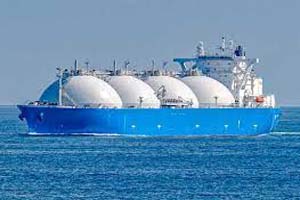
Pakistan – Qatar LNG Cargo Rationalization
Due to limited flexibility under existing agreements for rationalizing LNG cargo deliveries, Pakistan will present four options to Qatari authorities. The change originates as the country encounters an excess of RLNG, driven by reduced demand from captive and power-sector consumers. The Petroleum Division informed that the Government of Pakistan (GoP) and Qatar had signed a 2015 memorandum of understanding for LNG supply to reduce the nation’s gas deficit. The Petroleum Division emphasized the declining demand, predominantly from RLNG-based power plants after intensifications in captive tariffs and imposition of Off-the-Grid levies, led to RLNG surplus. To temporarily manage the surplus, production from local gas fields has been curtailed to avoid Take-or-Pay penalties and E & P companies have warned that prolonged reductions could damage reservoirs.
|
|
© 2025 Alpine Marine Services Private Limited
all rights reserved
|
|
|